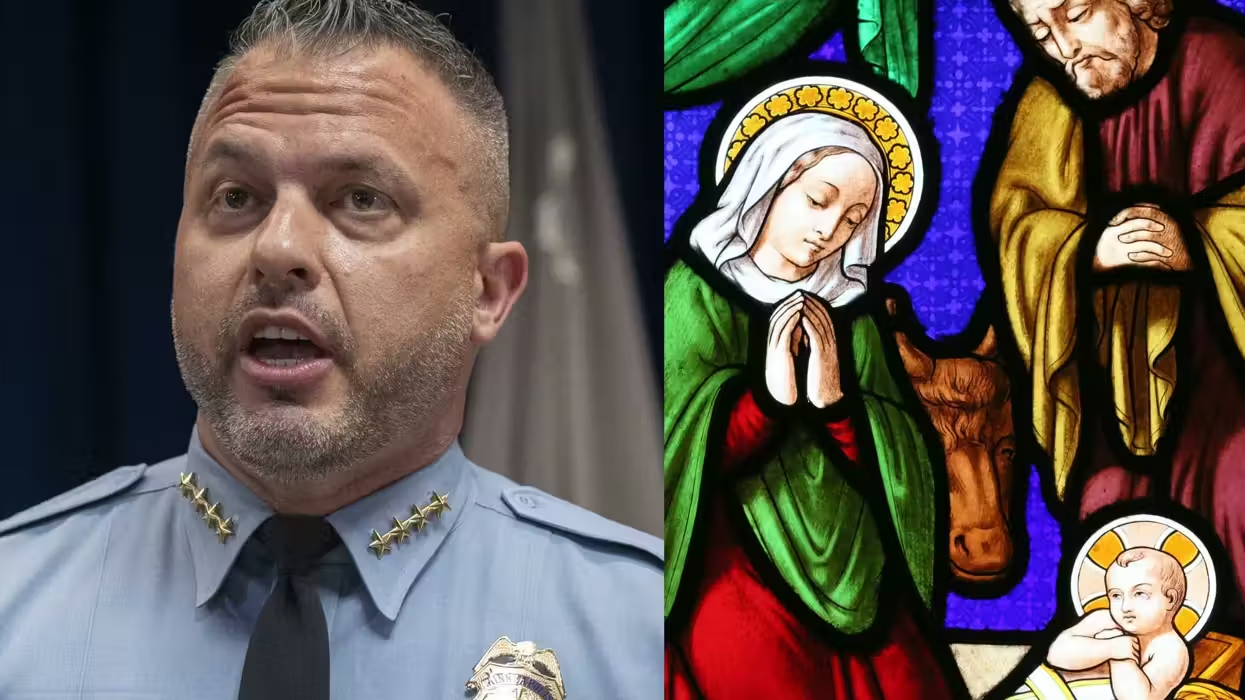
© 2025 Blaze Media LLC. All rights reserved.
Censored: New Version of 'Huckleberry Fin' Erases 'Injun' and N-Word
January 05, 2011
"This is like changing "War and Peace" to "Peace," because war is unpleasant to remember..."
The editor calls it more of an "updating" than censorship. But it's hard to believe that stripping a classic novel of over 219 offensive words is anything but.
Auburn University Prof. Alan Gribben is working on a new edition of Mark Twain's "Adventures of Huckleberry Finn" and "Tom Sawyer," replacing N-word with "slave," "Injun" with Indian, "half-breed" with half-blood in an effort not to offend readers.
"This is not an effort to render 'Tom Sawyer' and 'Huckleberry Finn' colorblind," Gribben told Publishers Weekly. "Race matters in these books. It's a matter of how you express that in the 21st century."
He argues the offensive nature of the classic means its dying a slow death: schools are increasingly banning their students from reading it. And he believes the offensive words put the books in danger of joining the list of literary classics that Twain once humorously defined as those "which people praise and don't read."
Keith Staskiewicz of Entertainment Weekly says the issue is a sticky one. On the one hand, it's censorship plain and simple. "On the other hand," he writes, "if this puts the book into the hands of kids who would not otherwise be allowed to read it due to forces beyond their control (overprotective parents and the school boards they frighten), then maybe we shouldn’t be so quick to judge."
To him, it mirrors an edited version of a profanity-laced movie shown on TV: "It’s unfortunate, but is it really any more catastrophic than a TBS-friendly re-edit of The Godfather, you down-and-dirty melon farmer?"
But Twain scholar Thomas Wortham of UCLA think kids and society actually benefit from the controversial language. He told Publisher's Weekly that "a book like Professor Gribben has imagined doesn't challenge children [and their teachers] to ask, ‘Why would a child like Huck use such reprehensible language?'"
Another Twain scholar, professor Stephen Railton at the University of Virginia, said Gribben was well respected, but called the new version "a terrible idea."
The language depicts America's past, Railton said, and the revised book was not being true to the period in which Twain was writing. Railton has an unaltered version of "Huck Finn" coming out later this year that includes context for schools to explore racism and slavery in the book.
"If we can't do that in the classroom, we can't do that anywhere," he said.
Anderson Cooper recently hosted a panel to discuss the issue:
"The [N] word is terrible," writes Washington Post blogger Alexandra Petri. "But it's a linchpin of this book. What makes The Adventures of Huckleberry Finn so radical is the fact that in a time when the horror of slavery was still fresh and the specter of inequality hung over the whole country, Mark Twain was still able to use satire to show how wrong it was."
"This is like changing War and Peace to Peace, because war is unpleasant to remember, or removing World War I from All Quiet on the Western Front," she adds.
"We'll just let the readers decide," Gribben told the Associated Press.
The Associated Press contributed to this report.
Want to leave a tip?
We answer to you. Help keep our content free of advertisers and big tech censorship by leaving a tip today.
Want to join the conversation?
Already a subscriber?
Jonathon M. Seidl is a former managing editor of Blaze News and a best-selling author and speaker. His next book, “Confessions of a Christian Alcoholic,” will be released on October 7, 2025.
Jonathon M. Seidl
Jonathon M. Seidl is a former managing editor of Blaze News and a best-selling author and speaker. His next book, “Confessions of a Christian Alcoholic,” will be released on October 7, 2025.
more stories
Sign up for the Blaze newsletter
By signing up, you agree to our Privacy Policy and Terms of Use, and agree to receive content that may sometimes include advertisements. You may opt out at any time.
Related Content
© 2025 Blaze Media LLC. All rights reserved.
Get the stories that matter most delivered directly to your inbox.
By signing up, you agree to our Privacy Policy and Terms of Use, and agree to receive content that may sometimes include advertisements. You may opt out at any time.






